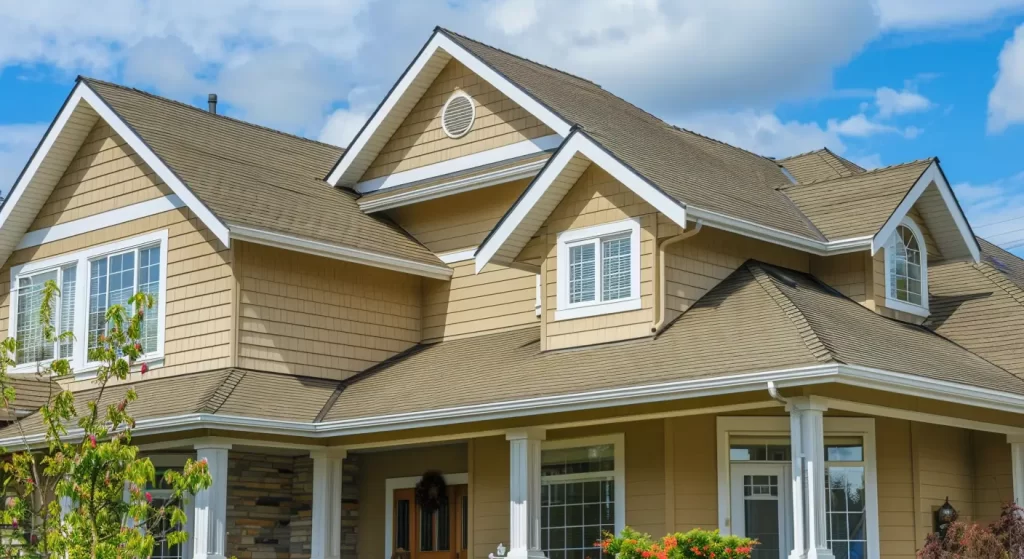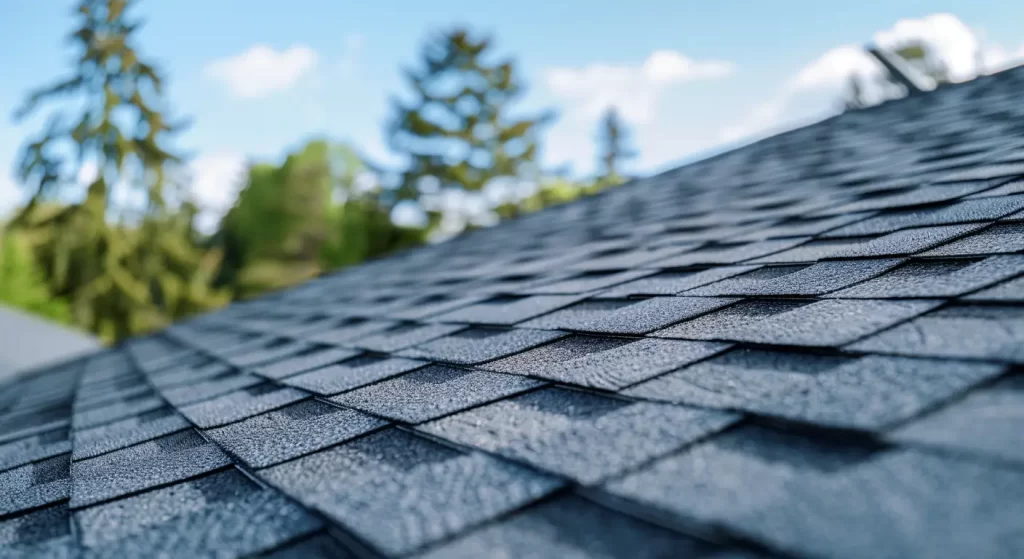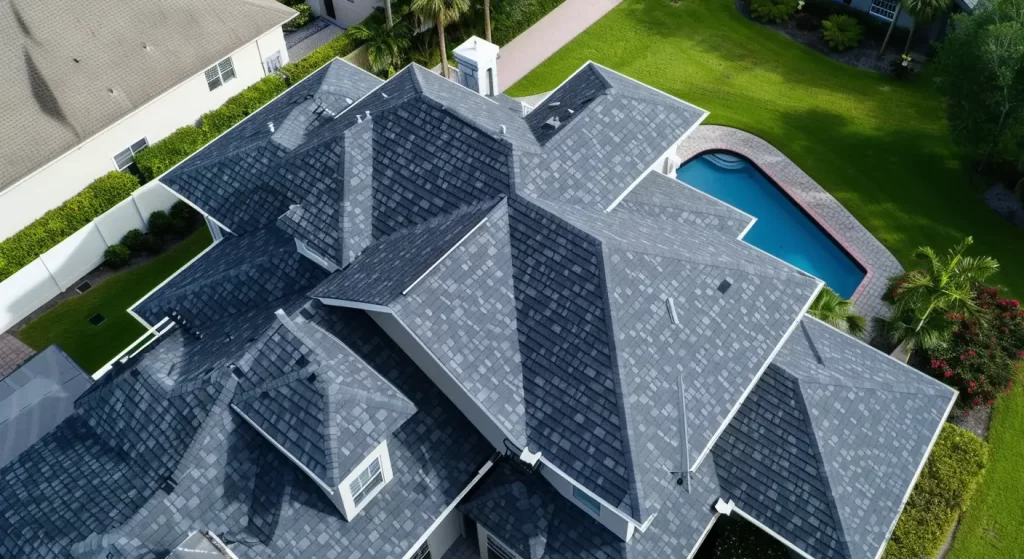Your roof is your home’s first defense, so choosing a reliable roofing contractor is vital—especially when storm damage strikes. Unfortunately, roofing scams have become all too frequent, preying on homeowners in need of roof replacement or repairs. At Shield Roofing, we understand how unsettling this can be. With over 25 years of experience serving San Antonio, TX, our goal is to protect your peace of mind and ensure quality work. Recognizing the warning signs of roofing scams is the best way to keep your property—and investment—safe.
Common Types of Roofing Scams in the United States
Across the country, homeowners face various common roofing scams, especially following severe weather. Scammers exploit the chaos after storms, pretending to offer emergency repairs or roof replacements while plotting to overcharge or deliver substandard work. Some even commit insurance fraud by billing your insurance company for phantom roof damage or inflating claims.
It’s important to stay vigilant and informed. Unscrupulous contractors rely on confusion and quick decisions—don’t let your insurance company become a target or your home fall victim to their schemes. Next, let’s look at how storm chasers and door-to-door solicitors operate these scams.
Storm Chasers and Door-to-Door Solicitors
Storm chasers and door-to-door solicitors often exploit homeowners’ vulnerability after bad weather. These fraudsters offer urgent repairs that may lead to subpar work, sometimes claiming ties to reputable roofing companies or insurers to gain trust.
Beware of deals that seem too good to be true, especially those with low estimates or high-pressure tactics. Legitimate roofers provide detailed scopes of work and binding contracts, not just verbal promises. Protect yourself by researching credentials, asking for references, and checking reviews from trusted sources like the Better Business Bureau. Always secure bids from reliable roofers.
Fake or Unlicensed Roofing Contractors
Opportunistic fraudsters often target homeowners, especially after severe weather. A common scam involves fake or unlicensed contractors who present themselves as trustworthy, offering low bids for necessary work. These scammers typically demand large down payments but deliver subpar repairs or abandon the project.
Exercise caution when evaluating contractors. Ensure a legally binding contract outlines the work scope and provides a detailed breakdown of materials and labor costs. Research online reviews and verify credentials with the Better Business Bureau to identify unlicensed contractors. Trustworthy roofers focus on quality service, protecting homeowners’ investments from scams.

Warning Signs of Low-Quality Roofing Bid
Receiving a bid for roofing work that seems too good to be true is a big red flag. Low-quality bids often skip the details, omit necessary materials, or fail to account for the true scope of roof replacement. Shady contractors may use these tactics to lure you in, only to surprise you with unforeseen problems and extra charges later.
Be wary of bids that don’t address the insurance deductible or seem far below market rates. Always compare multiple estimates, and ask for a clear breakdown of costs, materials, and labor to avoid being caught in a roofing scam.
Extremely Low Estimates Compared to Market Rates
A major red flag in the roofing industry is extremely low estimates that seem too good to be true. Fraudsters exploit homeowners’ anxiety with offers below market rates, creating an illusion of savings. This often leads to inadequate repairs or substandard materials, resulting in future issues.
A reputable contractor’s estimate should align with industry standards and provide a detailed breakdown of labor and material costs. Significant deviations may indicate a scam or poor service. Conduct thorough research and consult multiple contractors to avoid hasty decisions based on tempting prices. Prioritize quality for the longevity of your roofing project.
Lack of Detailed Project Breakdown
A detailed project breakdown is crucial for clarity in your roofing project. Vague bids may signal potential scams, with dishonest contractors using ambiguous terms or inflating costs. Without a clear scope of work, understanding total project and material costs becomes challenging, leading to unforeseen issues.
Reliable roofers will detail each phase, including labor and material costs, along with any extras. This transparency safeguards your investment and provides peace of mind. Be cautious of overly simplified bids or vague descriptions that may favor fraudsters over quality service. Researching and seeking a second opinion can help you avoid these pitfalls.

How to Verify a Roofing Contractor’s Credentials in San Antonio, TX
Making sure your contractor is trustworthy is a good idea for your peace of mind and wallet. In San Antonio, TX look for a reputable roofer with visible credentials, local experience, and a history of quality service. Verification protects you from insurance fraud, red flags, and costly mistakes.
To check if your roofer is legitimate, ask for proof of licensing, certifications, and insurance. Look up their ratings with the Better Business Bureau and read online reviews. Shield Roofing is proud of our BBB A+ rating, Owens Corning preferred contractor status, and certification with GAF and CTRCA.
Essential Certifications and Licenses to Look For
Verifying a roofing contractor’s credentials protects your investment. Key certifications, such as GAF and Owens Corning preferred contractor status, reflect high-quality standards, and we partner with these reputable brands for quality service. Licensed roofers comply with local regulations, while reliable contractors carry liability and workers’ compensation insurance to safeguard against financial losses from accidents. Checking the Better Business Bureau offers insights into a contractor’s reliability. Always request documentation outlining the scope of work to ensure clear agreements and avoid subpar materials or repairs. A trustworthy roofer will welcome this scrutiny.
Checking Reviews, References, and BBB Ratings
To find a trustworthy roofer, examining reviews and references is essential. Online reviews on platforms like Google and Yelp reveal past customer experiences, highlighting the contractor’s reputation. Consistent positive feedback suggests quality service, while repeated complaints about poor workmanship are major red flags.
Checking the contractor’s Better Business Bureau (BBB) ratings is also wise. A reliable roofer will have a solid BBB rating and verifiable references detailing their previous work. If reviews appear overly positive or feedback is scant, trust your instincts and seek a second opinion for peace of mind.

Contact Us
In conclusion, protecting yourself from roofing scams and low-quality bids is essential for receiving the service your home deserves. By recognizing common scams and warning signs of unreliable bids, you can make informed contractor choices. Always verify credentials, check certifications, and consult reputable reviews to find trustworthy professionals. At Shield Roofing, we boast 25 years of experience and outstanding industry ratings, delivering roofs built to last. Ready to protect your investment with a reliable contractor? Contact us today for support.
Read our blog: Common Commercial Roof Issues & Repair Strategies
Frequently Asked Questions
What should I do if I suspect a roofing scam?
If you suspect a roofing scam, stop communication with the contractor immediately. Contact your insurance company for advice, seek a second opinion from a trusted roofer, and report the incident to local authorities or the Better Business Bureau to protect others.
Are large down payments normal for roofing projects in Texas?
Large down payments are a red flag in Texas roofing projects. A reputable roofer will only require a reasonable down payment—typically no more than 20% of the total cost. Never pay the full amount up front, and always get receipts for any payments.
